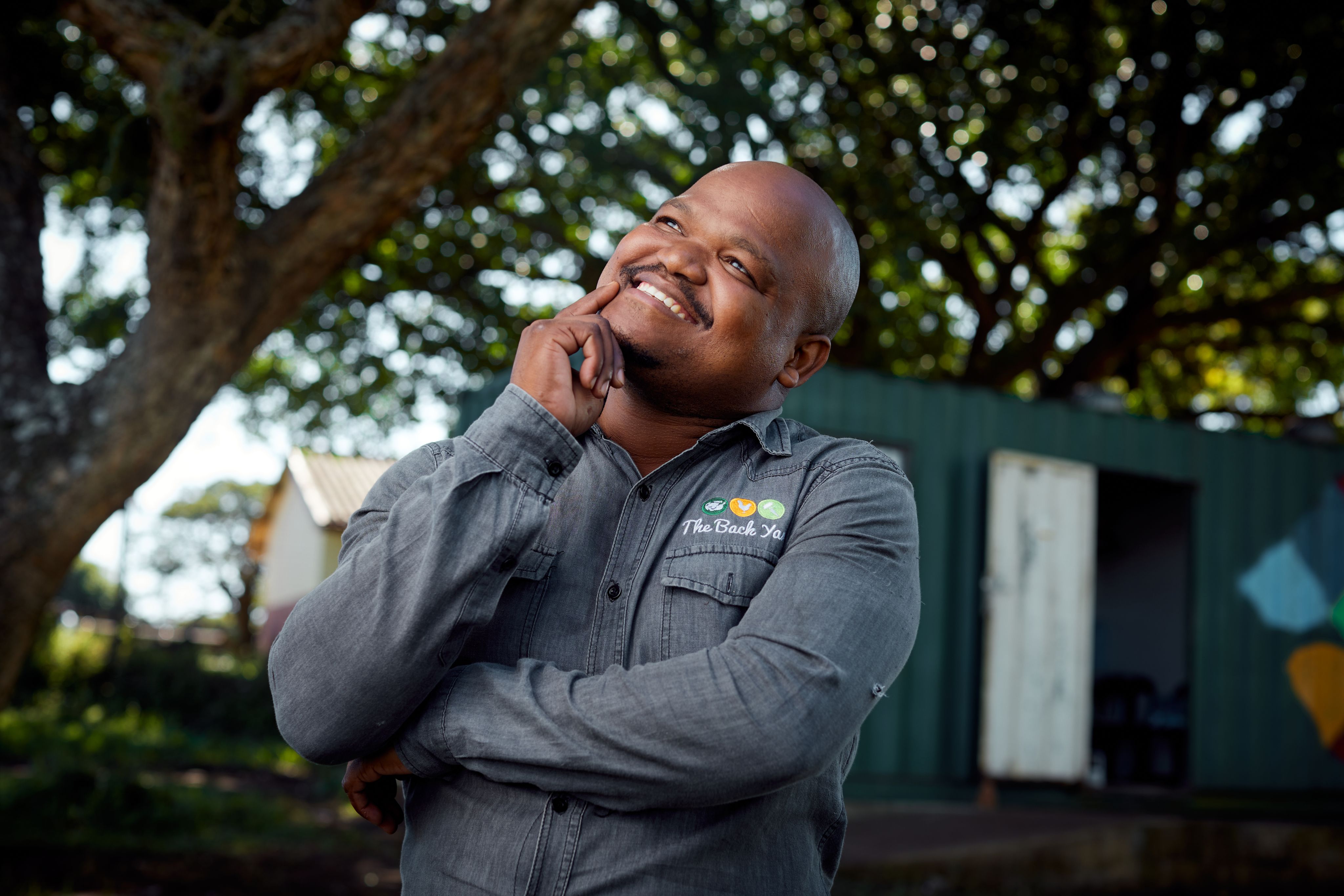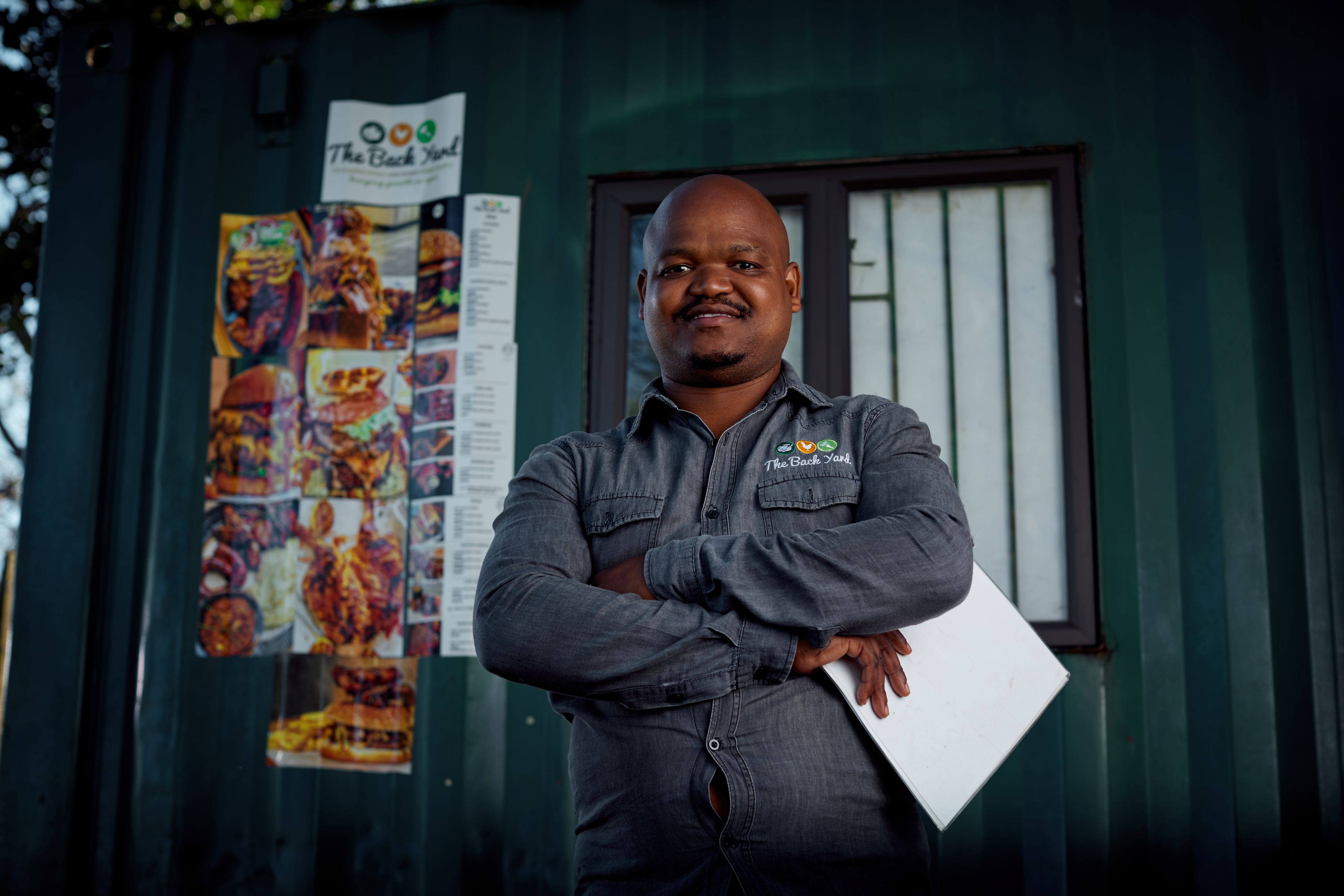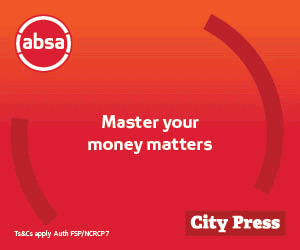Supporting a family through self-employment
The candidate has learnt to separate business from pleasure, through Money Makeover.
Follow six ordinary South Africans as they take up the Absa/City Press Money Makeover Challenge and undergo a money makeover bootcamp over six months. Each candidate has been allocated their own Absa financial adviser. The candidates are required to complete certain financial tasks and stick to the budgets set out for them. Personal finance expert Maya Fisher-French shares their stories.
Raymond’s situation is all too common in South Africa, where youth unemployment is at over 40%. Struggling to find work and not having funds to complete his tertiary education, Raymond is aiming to support his family through self-employment.
Raymond has a subsistence farm, and a small food enterprise called The Back Yard, in Ngwelezane township near Empangeni.
He has a passion and flair for food, creating mouthwatering meals, and was recently nominated for 1KZN TV Prestige Awards in the category for most innovative business.
However, he has been struggling to make the restaurant financially viable as he faces various challenges, including a lack of electricity.
When a Money Makeover candidate has a small enterprise, we always start with separating business and personal finances.
This is the only way to understand whether the business is making money and where the weaknesses are. Raymond worked with his Absa financial adviser Jacoline de Villiers to complete a household budget for his personal expenses to understand what he was spending.
This helped him identify what salary he needed to pay himself from the business.
“Separating my personal needs from my business needs was the hardest thing I have ever done. I am not working and depend on the money I’m making from the business, which means sometimes I would use business funds for personal reasons, but now that has all changed.”
“I’ve realised that, for me to see business growth, I need to be very strict, put my business first before anything else and make the right decisions. All I am fighting for is to make this business generate an income so I can take care of my family,” said Raymond.
The next step was getting to grips with the business finance. “Keeping track of my spending is the best thing I have ever done – I can now see all the money going out and money coming in,” said Raymond, who was struggling with the bookkeeping.
In recognising that his skill was in the kitchen, he employed someone to take care of financial records. He has also hired someone to help in the kitchen to prepare meals.
“They make things very easy as I need to put my focus on preparing meals and they take care of the rest, such as cleaning up and making sure all is under control.”
Raymond then needed to focus on pricing. Using a simple food costing template available online, Raymond could calculate what each plate of food was costing him to produce (see here).
He now has a good idea of how much he should charge for his meals.
“For example, the cost of making a burger is higher than I realised. There are a lot of ingredients, including tomatoes and lettuce, which I must price for,” said Raymond.
Now he knows the input price and profit per plate, he can calculate how many plates of food he needs to sell to cover his costs, including his salary.
Raymond has slowly been addressing the challenges of power to his kitchen. He used his incentive prize money to equip his kitchen with a bigger gas bottle, increasing from 9kg to 48kg. He has installed solar power for lighting and charging only. The next step is to purchase a gas fridge.
Without a fridge, he is forced to buy stock every day – this is eating into his profits. By purchasing a gas fridge, Raymond will be able to stock once a month, which will double his profits as he will save money by buying in bulk and on transport costs. Within two months, the extra profit in the business would pay for the cost of the fridge.
“This business is my last hope; I must do it correctly. A lot has changed since I started the Money Makeover challenge. I see things differently – I now can take the right business decisions.”
“I have improved on my costings and keeping my records. Separating my personal and business expenses was the hardest thing, but now it’s just music to my ears. I have gained so much business knowledge and skills – I realise that knowledge is more valuable than money.”

Using cabbages to buy a fridge
Most entrepreneurs run several different businesses and it is important to keep the expenses and bookkeeping of them separate.
However, one can use the profits from one business to provide capital for another. This could be in the form of a “loan agreement” between the businesses. For example, Raymond is about to harvest his cabbages and should earn around R6 900. He could lend this money to his restaurant business to purchase the fridge.
From the increased profits he will now generate from his restaurant, he can repay the farming business.
These are not legal agreements; it is more about the discipline of bookkeeping and accountability, and making sure you know what profits your businesses are making.
How to calculate the cost of a plate of food
If you buy a pack of chicken for R160, work out how many portions it serves, and then work out how much each portion costs.
For example, if you get eight portions from a pack, that would be R20 for the chicken per plate.
You then do the same for each ingredient on the plate. You then multiply the total cost of ingredients by three to get a recommended retail price.
Source: foodtruckempire.com
Obtaining the right skills
Many would-be entrepreneurs believe that the solution to their challenges is in obtaining a loan or other form of capital.
While Raymond does require capital to provide electricity and fridges, he has realised that knowledge and business skills are more important. Without these skills the money could be wasted. Raymond may be an excellent cook, but he needs help in putting a business plan in place.
Absa SME [small and medium enterprise] business banker Faiza Yousoof helped Raymond apply to the National Youth Development Agency. Raymond completed a seven-day Business Management Training Programme with the agency. He obtained a Start Your Business certificate, which included life skills and business management.
In January, he will be enrolled in an 18-month entrepreneur programme. Raymond has been very fortunate to be recommended by Absa for their Enterprise and Supplier Development programme that assists small businesses to develop their skills, apply for funding and be introduced to suppliers.
Norman Venketiah, head of SMEs in KwaZulu-Natal and Mpumalanga, explains that Absa collaborates with various corporate clients to provide these services to its customers as part of its broad-based BEE programme. The corporate will identify SMEs it wishes to support with funding, assist in providing learning opportunities for these SMEs in the form of supply or distribution contracts, or assistance with setting up businesses in the communities in which the corporate operates.
“Absa acts as agent on behalf of the corporate to manage the administration and disbursement of this impact finance to qualifying beneficiaries,” explains Venketiah, who adds that SMEs gain access to inclusive financing administered by the bank in the form of hybrid term loans.
“SMEs develop a credit profile during the period of the impact finance and, over time, can qualify for credit from Absa.”

Importance of a good credit record
Work on improving your credit score.
One of the challenges Raymond faces is that he has a judgment on his credit record that relates to outstanding rent. He has come to an agreement with the landlord that he will repay the amount once he has an income, however, until the judgment is removed, it will make it difficult to obtain a loan.
Raymond has identified that the judgment value on record with the credit bureau is far higher than the amount he owes. It is important that he gets this corrected because the value of the judgment is taken into consideration in a loan application. This can be done through the dispute process outlined by the credit bureau.
The credit bureau can remove a judgment in the following instances:
- If the capital amount is paid in full;
- If the judgment is rescinded by the court; and
- If the judgment is abandoned by the credit provider.
Updating/amending the judgment amount:
- An arrangement cannot update the judgment amount. The judgment will be removed entirely once the amount for which the judgment was granted (capital amount), is paid in full.
- The judgment amount can, however, be disputed or amended where it is factually incorrect – meaning the amount that displays at the credit bureau is different from the judgment amount granted on the court order.
Source: Experian
Find out more about the contestants and their advisers here:
If you really want to get your finances in order, you have to start tracking your spending. If you cannot commit to that, it is unlikely you will be able to reach your goals.
City Press will follow the candidates’ progress on the first and third week of each month, as well as online on the Money Makeover page:
Follow the journey – and join in – @CPMoneyMakeover and #CPMoneyMakeover on Facebook and Twitter
Absa Enterprise Development assists SMEs with access to business development support, markets access and access to funding based on certain criteria’s being met. For further information on Absa Enterprise Development you can email ed@absa.africa
You can follow the story on social media #CPMoneyMakeover
Subscribe below for the Money Makeover Newsletter












